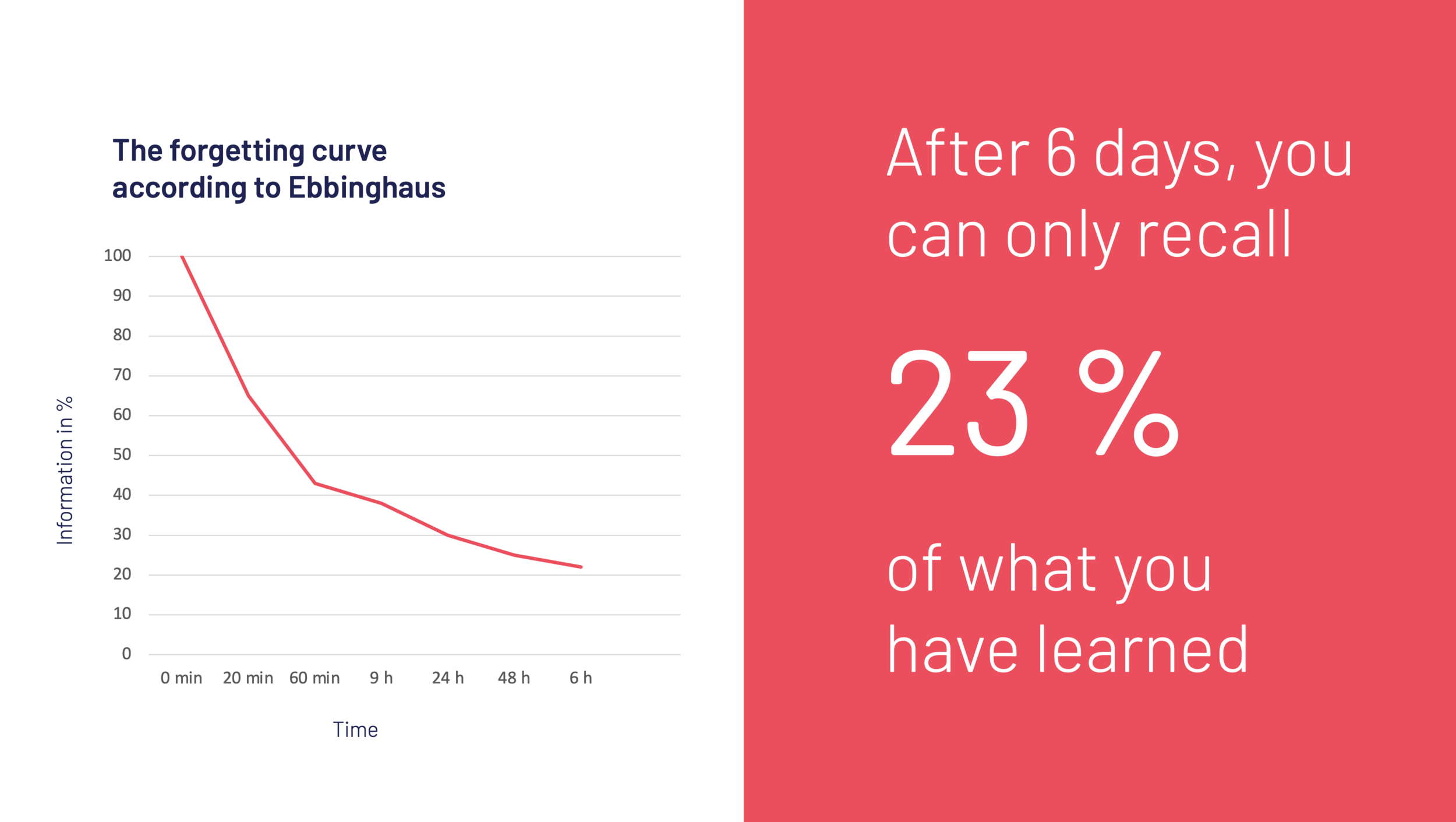Why forgetting makes us more successful …
… and how craftguide will support you!
But today I am forgetful.... Or have I always been?
Not attending to the dentist appointment, not answering an email or forgetting a coffee catch up with a colleague at work, hasn't this happened to all of us? Moments when we are grateful that our head is attached to our shoulders, because we would probably forget it somewhere. But why are we sometimes more forgetful than usual? Perhaps we first start by understanding what "forgetting" means. Information of emotional or informative value, is recorded on the memory track, but fades there after some time. It disappears as soon as it´s not of enormous importance - unfortunately too fast sometimes! Forgetting triggers anger and disappointment in us, however, the brain tries to protect us from an overload - thank you very much, dear brain.
Why forgetting helps
Having a memory like a sieve makes perfect sense. It helps us get through life much better than keeping everything in our head! Our memory is there to help us remember important information that will give us an asset in life. We quickly forget information that is only of short-term importance. Forgetting also has an important role to play in dangerous situations. We are only able to make the right decisions quickly because our brain filters what´s important for this moment. If we had to think through all our saved information first, the reaction would be much slower. Forgetting is also a protective mechanism of the brain. There are always moments in life that you want to forget forever. That is why forgetting is an important part of acceptance. In summary, the brain can be seen as our bodyguard: It helps us to filter, accept, and most importantly, focus on what's important.
Forgetting is measurable!
On some days, we feel particularly forgetful. But we are not alone with this, because forgetting is measurable. Based on scientific research, Prof. Ebbinghaus developed the forgetting curve. This visualizes how quickly people forget what they have learned on average. It shows that after 20 minutes only 60 % of the absorbed information can be recalled, after one hour only about 34 %, after almost one week you only remember 23 % of what you have learned.
The forgetting curve in our everyday life explained
The coffee machine has been blinking for 4 days - the filter needs to be changed.
Alright! I don't have the new filter at home, so I'll just order it. I can find the right filter in the manual - and while I'm at it, I might as well look up how to do it. The order was sent on Monday, and on Saturday morning (just in time for coffee) the new filter was delivered. The package is unpacked and look... hm... how did it work? Somehow the filter has to be placed in and some buttons have to be pressed... but which ones? It's the little things in our everyday lives that often make us wonder "Is it just me?", but no, we're all in the same boat. It is what it is, we just can't remember every detail, our bodyguard won't let us.
Craftguide as a safety grid in everyday working life
If we transfer our example of the coffee machine to the everyday work of a HVAC service technician, it quickly becomes apparent that a similar problem exists here. As a HVAC technician, you face the challenge that every customer has a different heating, heat pump or ventilation system in the basement. It is impossible to remember all the device-specific details. But it's not necessary, because as a specialist you know what's important. The only annoying thing is that you have to search for ages in the operating instructions or call the manufacturer's support hotline just because you can't remember where the adjusting screw or spare part is located on this device. In addition, there are very specific jobs that rarely need to be done. These small tasks are easily forgotten. However, as we have learned, this is important and correct for a productive workday.
Comfortable forgetting, because you always have your knowledge in your pocket
This is how craftguide supports you in important, but rarely performed work:
As a work preparation tool to refresh your knowledge and as a backup.
During the work, if you are unsure what the next step is. When you struggle to remember or if you just want to double check (contributes to work safety).
Start to have your knowledge in your pocket with us and always be ready for every event! You can find more information here.


